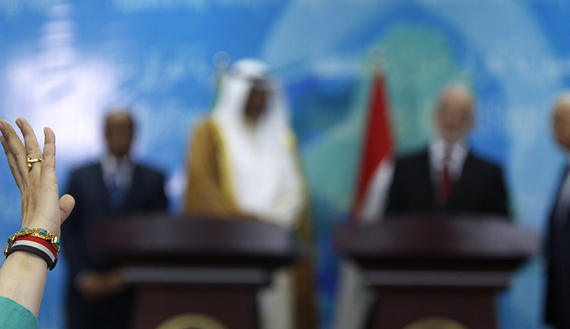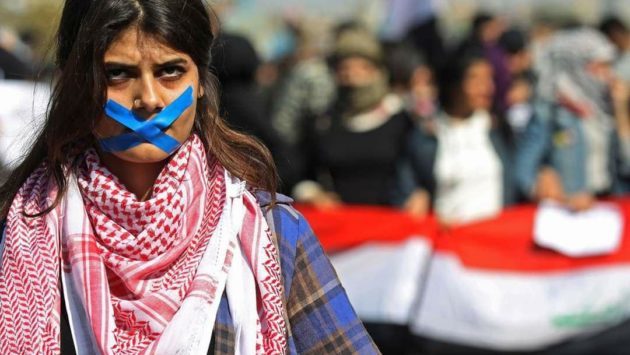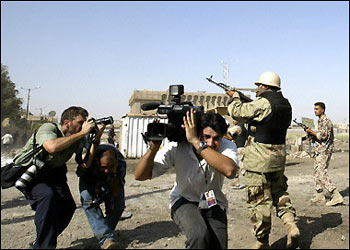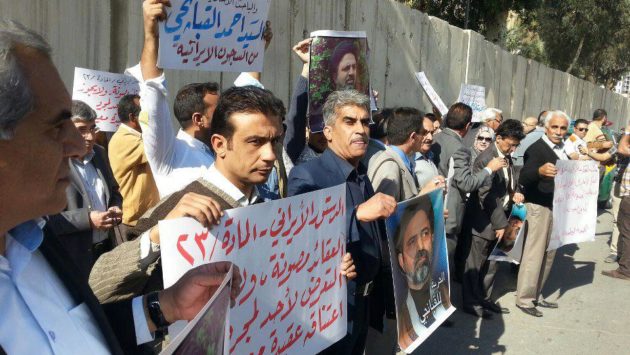Iraqis Wage New Battle for Freedoms!
Shukur Khilkhal – Al-monitor
The battle over civil liberties has erupted again, after a draft law written under the government of former Iraqi Prime Minister Nouri al-Maliki on freedom of expression, assembly and peaceful protest was returned to parliament in October. This draft law was presented to the previous parliament in October 2012, but it did not see the light of day because civil rights organizations in Iraq — including human rights organizations, the Journalistic Freedoms Observatory (JFO) and the Iraqi Association for the Defense of Culture — resisted the law and succeed in obstructing it and preventing its ratification.
Human Rights Watch (HRW) also expressed its opposition to the draft at the time. In an article published on its website, the organization called on the Iraqi government to “revise its draft law on freedom of expression and assembly to remove provisions that restrict those freedoms.”
“The draft law would allow authorities to curtail rights to protect the ‘public interest’ or for the ‘general order or public morals,’ without limiting or defining what those terms encompass,” the article noted.
It was expected that the draft law would be amended before it was resubmitted to the new parliament, but it was presented to parliament in October in the same form, without the slightest amendment. This sparked the concern of many Iraqis and ignited the battle anew. Human and civil rights organizations in Iraq expressed their concern regarding the insistence on resubmitting the draft law to parliament without amending it. The topic was widely covered in the media, and civil society organizations and some universities, such as Nahrain University in Baghdad, held seminars to examine the draft and show its flaws. Iraqi intellectuals began to rally against the draft law in its current form. Opponents believe that while it appears to protect civil liberties on the surface, in actuality it suppresses many of them. They think that it contradicts the Iraqi Constitution and undermines some of the freedoms contained in it.
In one of its paragraphs, the new draft law stipulates that “demonstrations shall be banned before 7 in the morning and after 10 at night.” Meanwhile, another paragraph calls for imprisoning “anyone who insults a symbol or person who is considered sacred or revered by a religious sect.”
Such provisions are vague and subject to debate and interpretation, thus restricting freedoms of demonstration, protest and expression. This is confirmed by Ziad al-Ajaili, the head of JFO, one of the organizations working against the draft. Ajaili told Al-Monitor by phone from Baghdad that the primary defect of the draft law was that it contradicted the Iraqi Constitution. He said it goes against Article 38, which guarantees freedom of expression; freedom of the press, printing, advertisement, media and publication; and freedom of assembly and peaceful demonstration. The constitution gives great importance to these freedoms, noting that the state guarantees the freedom of expression “through all means.” This law, however, seeks to clearly restrict this, and this is a violation of the constitution that should be confronted, according to Ajaili.
Ajaili believes that the previous government drafted this law because of the wave of demonstrations that swept Iraqi cities in protest of the authorities’ performance, as well as administrative and financial corruption. Due to this, the government tried to restrict freedoms of demonstration, protest and expression. Iraqis succeeded in challenging the draft at the time. According to Ajaili, it is strange that the new parliament is being subjected to an attempt to pass the same draft without any amendments.
It seems that Iraqis’ battles for their freedoms are no less fierce than those against terrorism. There are always political parties and figures seeking to restrict civil liberties under political or religious pretexts. Not a year goes by without Iraqis being forced to defend their rights and liberties in the face of draft laws that attempt to return them to times of oppression. The confrontation they are engaged in now against this draft law is very important, because compromising fundamental freedoms guaranteed by the constitution could be the beginning of a slide into darkness and dictatorship.





